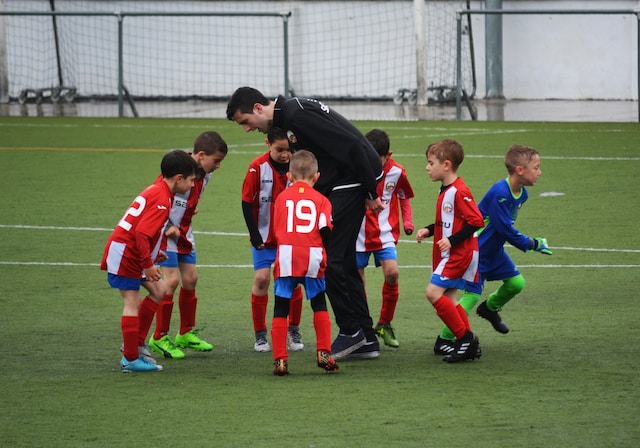In the contemporary world, parents are continually seeking avenues to enrich their children’s lives and foster crucial life skills. Youth soccer programs have gained tremendous popularity as a means of promoting physical fitness, teamwork, and discipline among youngsters.

However, for parents, the world of youth soccer programs can appear as an intricate maze, often bewildering and challenging to navigate. In this extensive guide, we will embark on an in-depth exploration of the youth soccer landscape, offering invaluable insights and guidance to empower you to make informed decisions in the best interest of your child’s holistic development.
As parents, our central aspiration is to provide our children with opportunities that facilitate growth and holistic development. Youth soccer programs have emerged as a potent avenue for achieving these objectives. In this comprehensive article, we will embark on a journey into the realm of youth soccer. We will explore its multifaceted benefits, the diverse program types available, the critical consideration of when to start, and the indispensable role of parental support.
Understanding the Multifaceted Benefits of Youth Soccer
The Physical Advantages
Youth soccer is more than just a game; it’s a form of physical exercise that nurtures a child’s health. It promotes cardiovascular fitness, enhances strength, and hones agility. Moreover, regular participation in soccer can serve as a powerful antidote to childhood obesity, setting the stage for a lifelong commitment to fitness and well-being. By instilling healthy habits from a young age, soccer can contribute significantly to a child’s overall physical health.
The Psychological Rewards
Beyond physical fitness, soccer is a classroom for character development. It imparts valuable life skills such as teamwork, leadership, and problem-solving. In the crucible of a soccer match, children learn to set goals, manage their emotions under pressure, and gracefully navigate both triumph and defeat. These psychological benefits have a profound and lasting impact, fostering qualities such as resilience, confidence, and adaptability that extend far beyond the soccer field.
The Social Nexus
Soccer is not just a sport; it’s a social nexus where children build lasting friendships and cultivate effective communication skills. Within a team, they discover a sense of belonging and responsibility. The camaraderie forged on the soccer pitch can translate into positive and enduring relationships beyond the game.
Choosing the Right Age to Kick Off
Determining the ideal age to introduce your child to soccer is a pivotal decision, and it comes with its own set of considerations.
Early Introduction vs. Patient Waiting
Some parents eagerly enroll their children in soccer programs as young as three years old, while others opt for a more patient approach, waiting until their child is older and more physically developed. Each approach has its merits and nuances.
Early can help children develop fundamental motor skills and instill a love for the sport. However, it’s crucial to ensure that the focus remains on fun and play, as opposed to intense competition, at this early stage.
Conversely, waiting until a child is a bit older allows them to understand the game better and make a more informed decision about their interest in soccer. However, delaying the introduction may mean missing out on some of the physical and social benefits of early exposure.
Ultimately, the decision should align with your child’s unique interests and developmental readiness.
Exploring the Myriad Dimensions of Youth Soccer Programs
Youth soccer programs come in a multitude of forms, catering to varying levels of commitment and skill. Here, we delineate the primary program types:
Recreational Leagues: Where Fun Meets Fundamental Learning
Recreational leagues serve as an ideal entry point for young children eager to explore soccer in a relaxed, low-pressure environment. These leagues prioritize enjoyment and participation over competition. They typically involve fewer practice hours and less emphasis on winning, making them an excellent choice for beginners and those seeking a fun introduction to the sport.
Competitive Leagues: Nurturing Excellence and Commitment
On the opposite end of the spectrum are competitive leagues designed for players who are deeply committed to soccer and aspire to elevate their skills to the next level. These leagues involve more rigorous practice schedules and often participate in regional or even national competitions. Tryouts are commonplace, and players are expected to demonstrate dedication and passion for the sport. Coaches at this level may also take their role a little more seriously, perhaps even reading Soccer Coaching Books so that they can deliver the very best training sessions and get the most out of their young players.
Soccer Camps: Intensive Learning in a Playful Atmosphere
Soccer camps offer concentrated training over a specific period, such as a week or several months. They are ideal for players looking to refine their skills during school breaks. Typically led by experienced coaches, these camps provide an immersive and focused learning experience.
Before selecting a program, it’s crucial to consider your child’s level of interest, commitment, and the time and financial resources you can allocate.
Your Child’s Soccer Odyssey Awaits
In conclusion, youth soccer programs offer a myriad of opportunities for physical, psychological, and social development. As a parent, your active involvement and guidance play a pivotal role in your child’s soccer journey. By following the guidance provided in this comprehensive guide, you can navigate the intricate world of youth soccer programs, ensuring that your child’s experiences are fulfilling, enriching, and conducive to their holistic growth.
For those interested in children’s soccer classes, programs, and camps, we recommend reaching out to A Kick In The Grass for a memorable and impactful soccer experience.